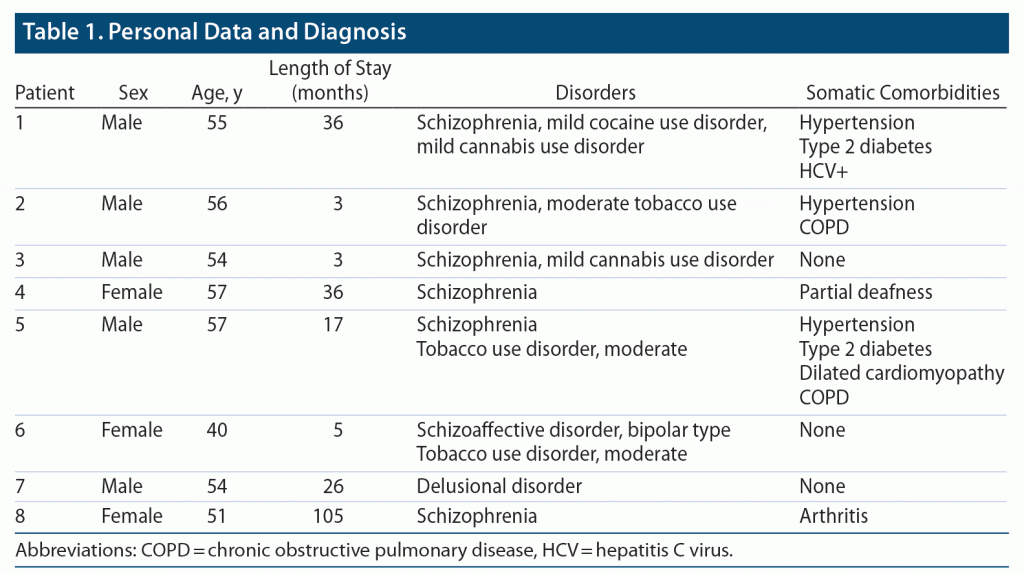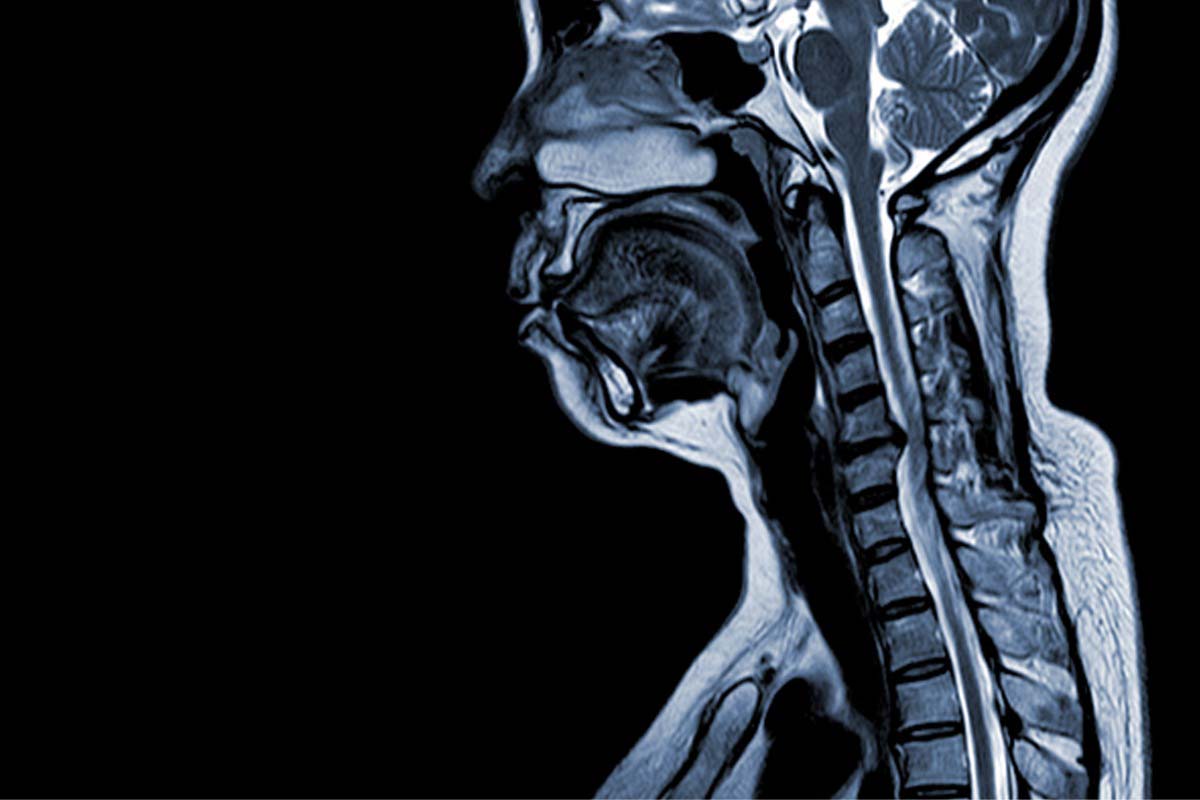After more than a year since publication of the report “Prevention Plan for COVID-19 in a Psychiatric Long-term Care Rehabilitation Facility: An Italian Experience” in the PCC,1 we would like to address the evolution of the clinical and organizational management of the COVID pandemic in this psychiatric facility and its outcomes.
DESCRIPTION
Two years after the first-reported Italian case of COVID-19, we documented the first and only cluster of SARS-CoV-2–positive inpatients in our psychiatric long-term care rehabilitation facility (PLTCRF) (Department of Mental Health of S. Gerardo Hospital, Monza, Northern Italy). The following data refer to the end of July 2022.
During the pandemic, the management of the PLTCRF has always complied with the Ministry of Health and regional dispositions,2,3 thus sheltering and protecting inpatients from COVID-19. We were able to identify a cluster of 8 inpatients on June 28, 2022, due to our monitoring program, consisting of twice-monthly nasopharyngeal swabs. The patients’ characteristics, including the main psychiatric diagnosis (as per DSM-5 criteria), are outlined in Table 1.
The patients were attending a rehabilitation program and were under pharmacologic treatment. All of them were (and still are) in good psychopathologic condition and vaccinated against COVID-19.
In reaction to the cluster, we applied the following protocol to monitor the positive inpatients and to update the sanitary measures already in place in the facility to prevent, control, and mitigate the outbreak. The policies have been applied, as outlined in Table 2.
The 8 COVID-positive inpatients were paucisymptomatic: 2 had a body temperature up to 39°C (102.2°F) and 3 felt dizzy and had asthenia, headache, respiratory symptoms, and sore throat. On average, the duration of symptoms was 5 days (between a minimum of 2 days to a maximum of 8 days). So far, no complications have been noted. The most evident psychological symptoms observed were sleep disturbance (difficulty falling or staying asleep), restlessness, irritability, and anxiety.
The cluster was resolved on July 30, 2022. Thereafter, we regularly resumed the clinical and rehabilitative activities, revoking the measures detailed here but maintaining the basic rules of personal protective equipment, hand sanitizing, and social distancing.
DISCUSSION
According to the clinical governance, an audit was performed applying the root cause analysis to assess the source of the cluster. The first factor considered was the changes in the legislative framework in Italy. According to the legislative decree DL 24/2022 A.S.2604, the Italian government declared the end of the state of emergency on March 31, 2022, and gradually mitigated the existing restrictions in terms of COVID-19 safety instructions in indoor and outdoor nonsanitary environments. Use of personal protective equipment, social distancing, and body temperature checks was no longer mandatory, thus consequently increasing the potential risk of infection.
Within this new context of decreased protection measures, the audit identified the recently resumed exit permits out of the facility as the principal risk factor for the infection and the occurrence of the cluster: only the inpatients that left the facility became infected, although exit permits issued before and after the end of the state of emergency were similar in numbers. Moreover, the audit showed that there was no correlation between the typology of exit permit and the risk of getting infected: short exit (1 to 2 hours), half-day exit, or daily permit (overnight stay out of the facility).
Gathering in a group outside of the facility was identified as another risk factor for the cluster because the infection spread among those that who congregated in a group, as shown in the description below of the resident subgroups.
- The 8 inpatients who became infected were part of the group that went out of the facility together.
- The 9 inpatients without the exit permit did not get infected.
- Eight inpatients left the facility but did not get infected because they practiced social distancing outdoors.
We also identified the SARS-CoV-2–specific variant to be the Omicron-5 type. Therefore, the audit confirmed that the Omicron variant is more transmissible and has a higher risk of infection4 in the population.
The audit also determined the positive factors that allowed us to mitigate, control, and end the outbreak, protecting the other 17 inpatients from the infection. These factors were follows:
- Proactive environment (increased attention for safety measures, cooperation in the monitoring and early detection of cases)
- Drafting of an agreement of behavior between all stakeholders
- Psychoeducational interventions and psychological support for both residents and staff.
Vaccination was considered fundamental in ensuring paucisymptomatic and fast-resolving clinical courses.
Psychoeducational measures and psychological support allowed us to maintain psychopathologic stability. These measures encouraged participation and collaboration with regard to following the rules, which created a positive and caring environment.
Therefore, we observed no increase in burden on the psychiatric emergency services as in previous pandemic phases, nor did the infection cause anxiety, insomnia, depression, or posttraumatic stress disorder at rates comparable to what we observed previously.5,6
CONCLUSION
The experience highlighted here proves how monitoring procedures and following basic prevention measures can prevent, control, mitigate, and limit the outbreak of infections in a long-term care rehabilitation facility. The key factor is early detection of positive cases, correlating to a higher probability of success in terms of outbreak control. In this context, establishment of a positive environment, responsible management, support, and psychoeducational interventions are necessary. This goal can be achieved only through total collaboration of all stakeholders.
Article Information
Published Online: July 11, 2023. https://doi.org/10.4088/PCC.22br03413
© 2023 Physicians Postgraduate Press, Inc.
Prim Care Companion CNS Disord. 2023;25(4):22br03413
Submitted: September 7, 2022; accepted December 29, 2022.
To Cite: Nava R, Don PW, Zanvit FG, et al. Management of COVID-19 infection in a psychiatric long-term care rehabilitation facility: update from an Italian experience. Prim Care Companion CNS Disord. 2023;25(4):22br03413.
Author Affiliations: Department of Mental Health and Addiction, Health Care Trust, ASST Monza, Monza, Italy (Nava, Marcatili, Capuzzi, Colmegna, Clerici); School of Medicine and Surgery, University of Milano-Bicocca, Milan, Italy (Don, Zanvit, Clerici).
Corresponding Author: Roberto Nava, MD, Department of Mental Health and Addiction, Health Care Trust, ASST Monza, Monza, via Pergolesi 33, 20900 Monza (MB), Italy ([email protected]).
Relevant Financial Relationships: None.
Funding/Support: None.
References (6)

- Nava R, Zanvit FG, Don PW, et al. Prevention plan for COVID-19 in a psychiatric long-term care rehabilitation facility: an Italian experience. Prim Care Companion CNS Disord. 2021;23(5):21br03005. PubMed CrossRef
- DL 24/2022 A.S. 2604 Cessazione dello stato di emergenza. (G.U. Serie Generale, n. 70 del 24 marzo 2022). Accessed June 10, 2023. https://www.gazzettaufficiale.it/eli/id/2022/03/24/22G00034/s
- ORDINANZA del Ministro della salute del 15 giugno 2022.Misure urgenti in materia di contenimento e gestione dell’epidemia da COVID-19 concernenti l’utilizzo dei dispositivi di protezione delle vie respiratorie. (22A03642). (GU. Serie Generale, n 139 del 16 giugno 2022). Accessed June 10, 2023. https://www.gazzettaufficiale.it/atto/vediMenuHTML?atto.dataPubblicazioneGazzetta=2022-06-16&atto.codiceRedazionale=22A03642&tipoSerie=serie_generale&tipoVigenza=originario
- Araf Y, Akter F, Tang YD, et al. Omicron variant of SARS-CoV-2: genomics, transmissibility, and responses to current COVID-19 vaccines. J Med Virol. 2022;94(5):1825–1832. PubMed CrossRef
- Capuzzi E, Di Brita C, Caldiroli A, et al. Psychiatric emergency care during coronavirus 2019 (COVID 19) pandemic lockdown: results from a department of mental health and addiction of Northern Italy. Psychiatry Res. 2020;293:113463. PubMed CrossRef
- Caldiroli A, Capuzzi E, Tringali A, et al. The psychopathological impact of the SARS-CoV-2 epidemic on subjects suffering from different mental disorders: an observational retrospective study. Psychiatry Res. 2022;307:114334. PubMed CrossRef
Enjoy this premium PDF as part of your membership benefits!







